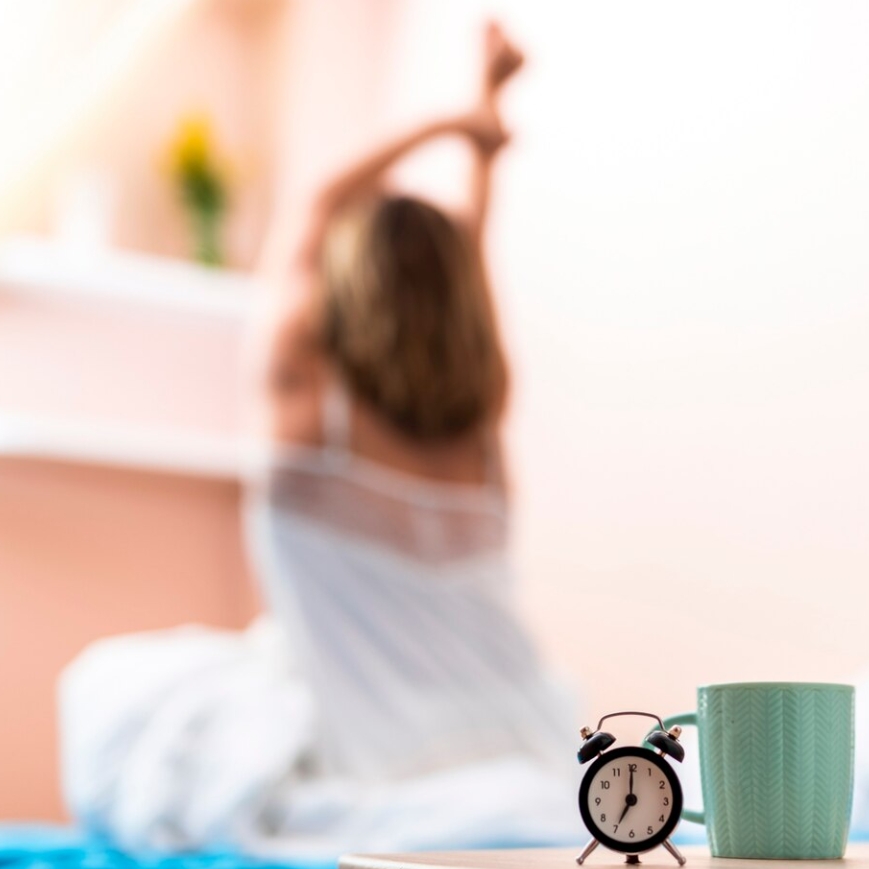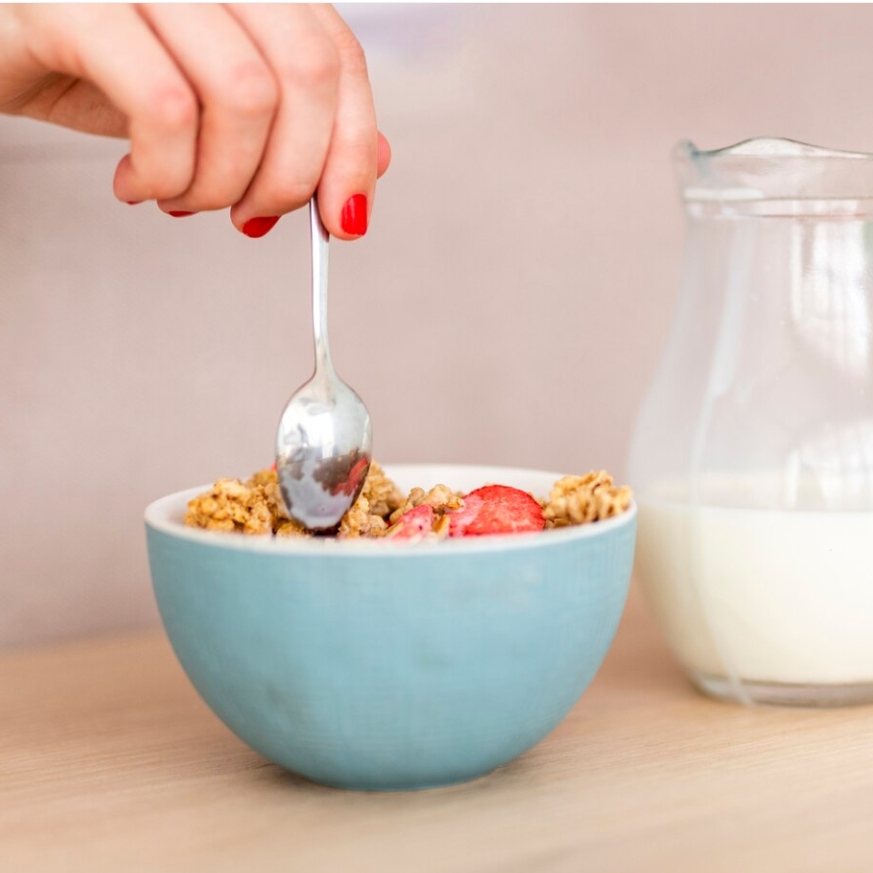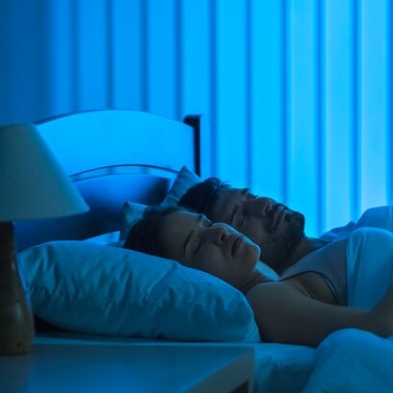Your wellbeing begins with sleep and good rest
Better sleep transforms every aspect of your life.
Let us help you take the first step.
The importance of sleep
Consistently sleeping poorly increases the risk of:
Diseases
Cardiovascular disease, obesity, diabetes and high blood pressure.
Problems
Mental health problems such as anxiety and depression.
Fatigue
Attention deficit, irritability and chronic fatigue.
How to achieve optimal rest
Follow these sleep hygiene habits

Good schedules
Maintain a regular and consistent sleep schedule every day.

Natural light
Expose yourself to natural light during the day for as long as possible.

Feeding
Avoid caffeine, alcohol and heavy meals before bedtime.

Relaxation
Engage in relaxing activities in the evening.

Without screens
Creates a dark, quiet, screen-free environment.
Sleeping well is not a luxury, it is a vital necessity.
Improving your rest will transform your energy, concentration and daily well-being.
Sleep: Key to your Physical and Mental Well-being
Getting a good night's sleep is essential for physical and mental health. While you sleep, your body and mind regenerate, allowing you to wake up with energy and mental clarity. Conversely, lack of sleep affects concentration, mood and daily performance.
Although general recommendations suggest between 7 and 8 hours of sleep per nightIn fact, more than one third of adults do not achieve this goal on a regular basis. In addition, sleep is a dynamic and complex process, influenced by both internal and external factors. Understanding how sleep works will allow you to optimize your rest and improve your overall well-being.
There is a mistaken belief that the body completely "shuts down" while we sleep. However, although physical activity decreases, the brain continues to function and coordinate numerous essential processes.
The main players in sleep regulation are:
HypothalamusCoordinates the production of hormones that regulate sleep, body temperature, hunger and mood.
Suprachiasmatic Nucleus (SCN)It is the body's "internal clock" and responds to changes in light and dark to regulate sleep-wake cycles.
RetinasThey capture light and send signals to the NSQ, helping to regulate the circadian rhythm.
Brain stemControls the transition between wakefulness and sleep.
ThalamusProcesses sensory signals and aids in memory consolidation.
Cerebral cortexInvolved in the processing of thought and memory.
Pineal gland: Produce melatonin with the darkness of the nightthe hormone that promotes drowsiness.
These elements work together to regulate the sleep cycle. During the day, sunlight suppresses melatonin production, keeping us awake. As night falls, the body increases production of this hormone to prepare us for rest.
The circadian rhythm is the natural 24-hour cycle that regulates various functions, such as sleep, metabolism and hormone production. It is controlled by the NSQ, which responds to light and dark.
Different factors can alter this rhythm:
❌ Use of screens 2hours before bedtime (blue light inhibits melatonin).
❌ Jet lag or frequent schedule changes.
❌ Night work or lack of sleep routines.
Another key process is the sleep homeostasiswhich regulates our "urge" to sleep. The longer we stay awake, the greater our need for rest.
In addition, each person has a chronotype different: Morning T1, T2 and T3. Afternoon S1, S2 and S3 and Intermediate D1, D2 and D3.
1. Morning chronotype
- They wake up early (between 5:00 and 7:00 a.m.) and perform better in the morning.
- They usually feel energy drops in the afternoon-evening and prefer to go to bed early (between 9:00 and 11:00 p.m.).
- They have an easier time adapting to conventional work and study schedules.
- They are less prone to sleep problems, although they may experience fatigue if forced to stay up late.
2. Nocturnal chronotype
- They have difficulty waking up early and perform better in the evening.
- They prefer to go to bed late (between 12:00 a.m. and 3:00 a.m.) and wake up after 9:00 a.m.
- They tend to have more problems with early work or academic schedules.
- They are more prone to sleep disturbances if they cannot follow their natural schedule.
3. Intermediate chronotype
- They usually lie between 11:00 p.m. and 1:00 a.m. and wake up between 7:00 and 9:00 a.m.
- They have stable energy throughout the day without major peaks of alertness or drowsiness.
- They adapt more easily to changes in their sleep schedules.
- They represent the majority of the population.
Each person has a biologically determined chronotype, but it can be adjusted slightly with habits and exposure to natural light. Knowing your chronotype helps you improve your rest and productivity.
Some people may experience circadian rhythm disorders when their biological clock is not aligned with light and dark cycles.
The sleep cycle is divided into four phases:
- NREM Stage 1Transition from wakefulness to sleep, lasts a few minutes.
- NREM Stage 2Light sleep, decreased heart rate and body temperature.
- NREM Stage 3At this stage is where sleep disorders such as sleepwalking, night terrors, bedwetting, etc. generally occur.
- NREM Stage 4Deep sleep, essential for recovery and memory.
- REM stageVivid dreams occur and brain activity increases.
Each sleep cycle lasts approximately 90 y 110 minutes. Ideally, it should be repeated 5 times a night, although factors such as age and sleep disorders can alter this structure.
How do you sleep?
- "I sleep well."
- "Neither good nor bad."
- "Sleeping is a waste of time."
Let me tell you that sleep is not wasted time.
It is one of the most important vital functions of our organism and is directly related to our physical and mental well-being.


Our mission: to help you sleep better
With more than 25 years studying sleepour Sleepcoach Gregorio Mora is dedicated to re-educating people to improve their sleep hygiene and reduce or eliminate the negative effects of poor sleep.
Thanks to our method, you will achieve a rest and relaxationThe result is a complete and effective care that makes the most of all the care you apply during the day.
How the Method works
We explain the 5 steps

Personalized evaluation
We analyze your current sleep routine, habits and quality of sleep.

Timetable optimization
We adjust your hours of rest according to your chronotype.

Techniques
scientists
We implement strategies based on neuroscience and chronobiology.

Follow-up and adjustments
We monitor your progress and make changes according to your evolution.

Results
measurable
You will feel the difference in your well-being from the first few weeks.
Get started today!
Book a session and take the first step towards restful nights of sleep and energized days.


